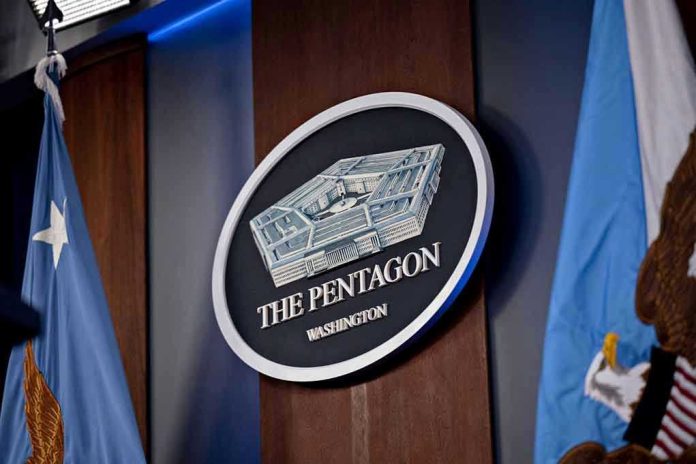
Three men died on the Caribbean waves, not from storms or piracy, but by the direct and public order of the United States government—an act that’s rewriting the rules of America’s war on drugs and raising profound questions about where law, morality, and power intersect on the open sea.
Story Snapshot
- The US has launched 17 lethal military strikes against suspected drug boats since September 2025, killing at least 70 people.
- These operations shift the anti-drug playbook from interdiction and arrest to direct, deadly force in international waters.
- Officials openly frame these strikes as a warning to narco-traffickers, while legal and diplomatic debates simmer beneath the surface.
- International partnerships and the public spectacle of these strikes suggest a new era of deterrence—with unpredictable consequences.
Direct Lethal Force: The Changing Face of America’s Drug War
On November 7, 2025, US forces obliterated a fast-moving vessel off the Caribbean coast, killing three suspected narco-traffickers. This marked the seventeenth such incident in just over two months, each strike announced with the clarity of a warning shot to every cartel and smuggler within earshot. Secretary of Defense Pete Hegseth did not mince words: operations will continue until, as he put it, “their poisoning of the American people stops.” These are not covert missions—each is a headline, a message, and a radical break with decades of drug enforcement tradition.
Previous US campaigns in the Caribbean focused on stopping boats, arresting crews, and seizing cargos. But since September 2, 2025, the US has shifted to overt, deadly action in international waters. The targets: small, nimble boats, often called “flippers,” that launch from Venezuela or Colombia, skimming toward US shores laden with cocaine. The result: at least 70 deaths, 18 vessels destroyed, and a collision course with legal and diplomatic norms that once seemed unbreakable.
Legal, Diplomatic, and Ethical Shockwaves
These operations challenge the foundational rules of international law, which traditionally restrict lethal force at sea to cases of armed conflict or immediate threat. The US now acts as judge and executioner in international waters, with little transparency on intelligence or evidence. Critics, including international legal scholars, warn that this approach risks not only diplomatic backlash but the erosion of legal standards that have governed the seas for centuries. The administration, for its part, frames these actions as an act of self-defense and a necessary escalation against “narco-terrorists.”
The public nature of these attacks is new. Each strike is announced, debated, and packaged for maximum deterrent effect. President Trump has reportedly provided secret target lists to Senate Republicans, ensuring political buy-in and signaling a willingness to expand the campaign. The stakes are high: if these actions are seen as effective, they could become a template for other nations. If they backfire or spark international incidents, the legacy could be one of chaos and unintended consequence.
International Partnerships and the New Deterrence Doctrine
Colombia and France have joined the US in recent anti-drug efforts, seizing over seven tons of cocaine and arresting multiple suspects in parallel operations. Colombian President Gustavo Petro hailed one such seizure as the largest of his administration, underscoring the international appetite for visible results. Yet, for coastal communities in Venezuela and Colombia—where these boats originate—the increased risk is palpable. The threat of sudden, lethal force has already begun to change trafficking routes and tactics, but it may also drive traffickers to become more ruthless and elusive.
For the US, the campaign is both foreign policy and domestic politics. With the opioid crisis still claiming tens of thousands of American lives annually, the administration projects toughness and resolve. No US casualties have been reported, and the strikes have, in the short term, disrupted several large shipments. Yet, the question remains: will this new doctrine deter traffickers, or simply usher in a more violent, unpredictable phase of the drug war?
Debate: Security, Legality, and the Future of Drug Enforcement
Military and security experts agree on the unprecedented nature of these repeated, public strikes in the Caribbean—no such campaign has occurred since the 1989 Panama invasion. Some analysts believe the boldness of the approach may paralyze traffickers, at least temporarily. Others warn that such heavy-handed tactics rarely deliver lasting results, pointing to decades of evidence from Latin America’s bloody history of drug enforcement.
Legal scholars question whether killing suspected traffickers without judicial process—or clear evidence of imminent threat—meets any recognized legal standard. Meanwhile, counter-narcotics professionals remain divided: some praise the disruption of supply chains, while others argue that cartels are already adapting, shifting operations, and recruiting ever more desperate actors. The broader risk is that maritime shipping and fishing—legitimate industries—may become collateral damage, caught in a new era of suspicion and summary violence at sea.
Sources:
WBAL: US conducts 17th lethal strike against alleged drug boat
ABC News: US conducts 17th lethal strike against alleged drug boat
Wikipedia: 2025 United States military strikes on alleged drug traffickers




